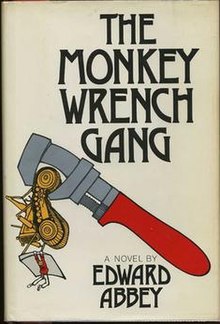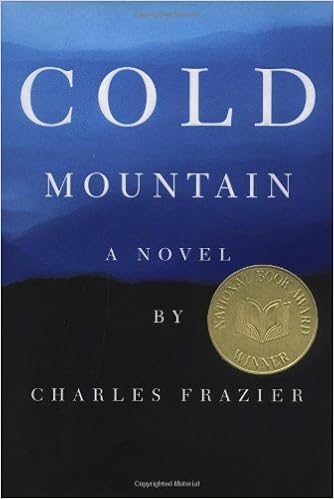
Wandering Home by Bill McKibben
Another in my Wilderness Studies reading list. I have to say, I enjoyed this much more than I anticipated. It is McKibben's account of a walk he took from his home outside of Middlebury, Vt., to his home in the Adirondacks of New York. So it's a rich guy going for a walk.
But McKibben has some interesting things to say on this walk, particularly about wilderness and its definition. After a rumination on snow geese, for example, he writes, "If we're going to talk about wilderness...we ahve to face the truth that it's a little hard to separate out the natural and the artificial, a little hard to figure out exactly where we're planting our feet" (68). Exactly. I appreciate an author who is more about questions than answers.
Part of what keeps the book interesting is the cast of characters with whom McKibben makes his march. One portion of the hike he completes with the founder of the magazine Earth First!, a militant pro-wilderness publication. After years out west, this individual found his wilderness in the east: "I'd been in Tuscon five years. I was starting to really miss fresh water..I have the Eastern forst in my bones...wilderness [is] not just a Western thing" (79).
So maybe that struck me because I am in the midst of the eastern forest and often find myself pining for Western wildlands. But it strikes me, too, because I think it strikes to the fact that this elusive thing we call wilderness is really just a construction of our own minds. Wilderness is where we find it.
Case and point: In early August of this year, I was out on a pre-dawn jog on the dirt roads above our house. I was preoccupied and before I knew it I had stumbled on a steepish downslope, my shoulder had connected rather perfectly (or imperfectly) on a rock, and I was screaming in pain. In the suburban neighborhood where I'd grown up, my howls surely would have elicited some response from someone. But not here. I was in the woods. And they weren't woods that would fit the definition of wilderness in the Wilderness Act of 1964, But that didn't bring anyone to my rescue. So I started to walk out, every step sending a jolt of very strange pain up my arm.
To me, wilderness has always had a tinge of danger to it; it was a place where I wasn't in complete control. And it turned out, that place was far closer to my home than I thought.





